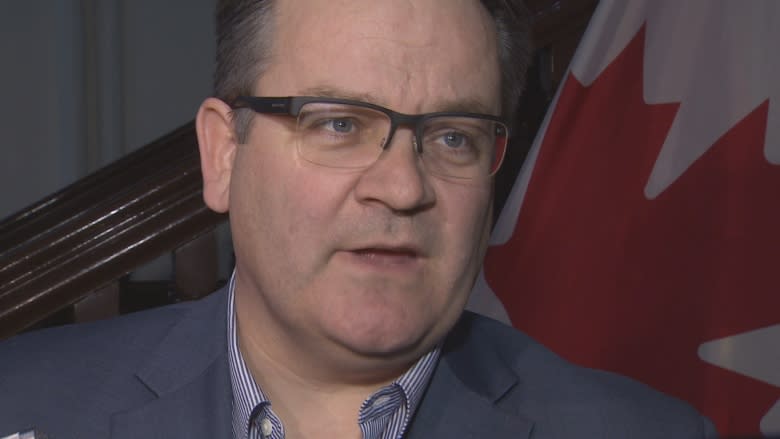Public health specialist sees 'weakening' of New Brunswick system
The New Brunswick government's decision to dismantle the Office of the Chief Medical Officer of Health could put peoples' lives in danger, according to a public health expert.
"Weakening a prevention system is never, ever a good solution," said Dr. Ak'Ingabe Guyon, a public health and preventive medicine specialist and assistant clinical professor in the school of public health at the University of Montreal.
And fragmenting the office of the chief medical health "would seriously be weakening public health," she said.
- Former health ministers speak out on privatization of extramural nursing
- Province restructures Office of Chief Medical Officer of Health
Before he was dropped from cabinet, former health minister Victor Boudreau announced in August the provincial government was restructuring the office and spreading some operations to other government departments.
Boudreau did not offer any specific reasons for the move, saying only that it was to "improve collaboration" and allow the province to "pool together similar professional sets of expertise within government."
Boudreau's successor, Benoît Bourque, has not provided an explanation either.
But Guyon said the recent changes could be the result of a misunderstanding of what public health does, since often it's not very visible.
"We know what happens when we go to a hospital," she said.
"We don't always know the background work that happens so that our water is safe, our food is safe."
She said the system also prevents avoidable diseases and outbreaks, such as measles, and it attempts to curb the use of tobacco.
"Prevention should never be seen as an expense, it's really an investment," she said.
The work of public health and agri-food inspectors will now be looked after by the Department of Justice and Public Safety.
The public health practice and population health branch will become part of the Department of Social Development and the healthy environments branch will be integrated into the Department of Environment and Local Government.
Guyon said scientific evidence is very clear in that governments do not increase efficiencies by "dismantling a public health team."
"There are already teams, they should be maintained, they should be strengthened," she said.
"This saves lives but it also saves money."
Quick reaction essential
And in a major health crisis, Guyon said, it's even more critical to have a clear command system and to have cohesive teams in prevention in public health.
"People need to know each other well in advance of crises to be effective when something happens and you need to react within seconds, minutes, hours." she said.
There are several features that make a strong public health system, she said, such as staffing with dedicated professionals and a good investment in public health.
Provinces to emulate
Provinces like British Columbia, Ontario and even Quebec demonstrate a strong public health system, she said.
Ontario learned the hard way about the dangers of weakening the system during Walkerton E. coli contamination tragedy, when seven people died and more than 2,300 became ill in May 2000.
In 2002, Justice Dennis O'Connor issued a report saying Canada's worst E. coli outbreak could have been prevented by the Ontario government.
"[It] turned healthy people into very ill people," she said.



